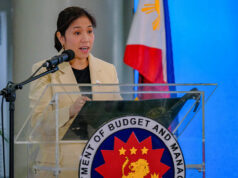US political scientist Larry Jay Diamond says that modern-day democracy consists of four key elements: (a) A political system for choosing and replacing the government through free and fair elections; (b) The active participation of the people, as citizens, in politics and civic life; (c) Protection of the human rights of all citizens, and (d) A rule of law, in which the laws and procedures apply equally to all citizens.
Using these parameters, how then can we rate “democracy” in the Philippines? Do we have all four elements present, operating in a vibrant and dynamic manner? Are our elections honest and credible? Do people — or most of them — care enough to actively participate in politics? How are we doing on protecting human rights? Is the law the same for both rich and poor?
If we cannot fully measure up to Diamond’s “standards,” how then should we grade “democracy” Philippine-style? Or maybe Diamond, a political sociologist and leading scholar in the field of democracy studies, doesn’t really know what he is talking about? This is despite being a professor of Sociology and Political Science at Stanford University, and teaching courses on democratic development, and publishing papers on foreign policy and democracy.
Perhaps another measure, an alternative to Diamond’s seemingly “technical” definition, is Lincoln’s “government of the people, by the people, for the people” in his Gettysburg Address. Incidentally, letter-writer James Langley, in a Letter to the Editor to The Washington Post published in March 31, pointed out that this was not a Lincoln “original” but was borrowed.
He noted that a book by author John Bartlett published in 1951 detailed that “in 1384, John Wycliffe wrote in the prologue to his translation of the Bible, ‘The Bible is for the Government of the People, by the People, and for the People.’” Langley also noted that Bartlett cited Theodore Parker using this phraseology in a sermon in Boston’s Music Hall on July 4, 1858.
Lincoln’s law partner William H. Herndon, happened to be in Boston at the time and returned to their law firm in Springfield, Illinois with some of Parker’s sermons and addresses. Herndon, in turn, had claimed “that Lincoln marked with pencil the portion of the Music Hall address ‘Democracy is direct self-government, over all the people, by all the people, for all the people.’”
From where I sit today, either “standard,” Diamond’s or Lincoln’s, do not appear to apply to Philippine-style democracy, where authority is still prone to abuse; where power can be wielded whimsically; and where people tend to prioritize self over community, vested over national interest, and personal over common or public good.
People have been dying on our streets, many gunned down either by policemen or unknown assailants, or were victims of crime. Even our policemen have had their share of the dead. Soldiers have likewise perished in places like Marawi, believing they were defending our democratic way of life. There seems to be no end to the bloodshed.
And Congress, in pursuit of what it believes to be right and proper, chooses to deny an appropriate and suitable budget to three government agencies as it approves the national budget for 2018. And while these three state offices are perhaps relative unknowns to most of us, and while such denial appears ministerial and more an attempt to send a “message,” it also conveys a number of wrong signals.
There is no denying Congress’ power of the purse. But, how this power is wielded, whether effectively or otherwise, also indicates our level of political maturity.
As things are, what recent events have unveiled are the vulnerabilities of Philippine-style democracy, and how actions of the elected few may not always reflect nor protect the interests of their voters.
Perhaps it is time that we stop kidding ourselves with delusions of democracy, or of achieving greatness as a nation within our lifetimes or that of our children and grandchildren. At best, what we have is a nominal form of democracy that simply goes through the motions of pretending that ours is a “government of the people, by the people, for the people.”
We periodically troop to the polls to “elect” leaders, despite the seemingly lack of choices, primarily to legitimize the grant of “authority” to a select few, who will decide for us on matters of state and governance, even if their decisions do not necessarily reflect the desires and the aspirations of the very people who legitimized their hold on power.
The public in general is rarely consulted in matters of state, and in crafting laws, only the select few with vested interests and access to power get to voice their sentiments and ventilate their concerns — at least in manner that they can be attended to. For the rest of us, however, our leaders will just have to decide for us, whether we like it or not.
Sadly, one gets the sense that our “democratic” institutions and our governments, our laws, are inconsistent and barely stand the test of time. Administrations change, and so do voters, and institutions and laws change along with them. And, not always for the better. Hope remains, of course. For nothing is impossible. But when true and lasting change for the better will occur, one can only guess.
We have been a republic since 1898, with next year marking our 120th anniversary as an “independent” nation. One would think that after 120 years of nationhood, that we would have learned our lessons. And yet, it seems, we have learned little from the past, as we keep repeating mistakes. Governments change, voters change, but our mistakes have been the same.
Marvin A. Tort is a former managing editor of BusinessWorld, and a former chairman of the Philippines Press Council.



